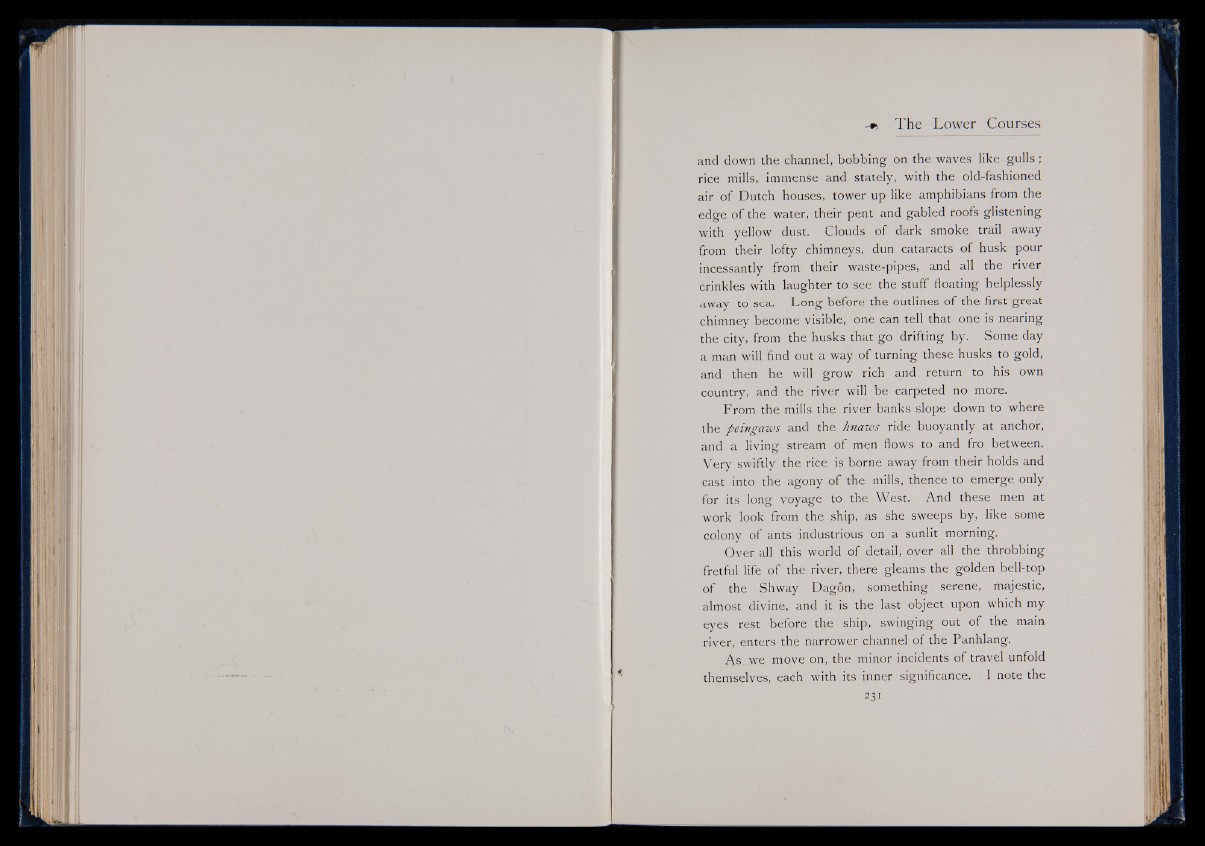
-•*> The Lower Courses
and down the channel, bobbing on the waves like gulls;
rice mills, immense and stately, with the old-fashioned
air of Dutch houses, tower up like amphibians from the
edge of the water, their pent and gabled roofs glistening
with yellow dust. Clouds of dark smoke trail away
from their lofty chimneys, dun cataracts of husk pour
incessantly from their waste-pipes, and all the river
crinkles with laughter to see the stuff floating helplessly
away to sea. Long before the outlines of the first great
chimney become visible, one can tell that one is nearing
the city, from the husks that go drifting by. Some day
a man will find out a way of turning these husks to gold,
and then he will grow rich and return to his own
country, and the river will be carpeted no more.
From the mills the river banks slope down to where
the peivgaws and the hnaws ride buoyantly at anchor,
and a living stream of men flows to and fro between.
Very swiftly the rice is borne away from their holds and
cast into the agony of the mills, thence to emerge only
for its long voyage to the West. And these men at
work look from the ship, as she sweeps by, like some
colony of ants industrious on a sunlit morning.
Over all this world of detail, over all the throbbing
fretful life of the river, there gleams the golden bell-top
of the Shway Dagon, something serene, majestic,
almost divine, and it is the last object upon which my
eyes rest before the ship, swinging out of the main
river, enters the narrower channel of the Panhlang.
$..s,„we move on, the minor incidents of travel unfold
themselves, each with its inner significance. I note the
231